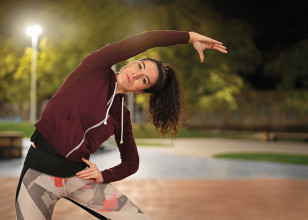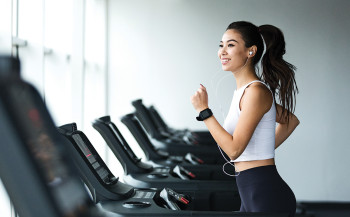
Water literally is the nectar of life. Even though water contains no calories and is devoid of all macro nutrients it helps every cell in your body to function properly. Many people fail to drink sufficient water to meet their body fluid requirement. Artificial drinks, tea or coffee cannot be considered a substitute for clean drinking water. In fact, these may cause further dehydration. Relying on thirst alone is not enough because by then you are already dehydrated. Dehydration leads to drop in energy, muscle cramps, dizziness, fatigue, and slows your metabolism along with causing several health problems.
Below are a few ways to ensure that you are not only drinking adequate water but drinking it right.
• Have 1-3 glasses of water first thing in the morning. This aids in the elimination process.
• Drink a glass of water an hour before and after your meal. If you need to drink, only have hot water with your meal (note that the main reason you need to drink during your meals is because you are not chewing your food properly and eating in a rush. Taking water or other beverages with your meals hampers digestion).
• Avoid drinking cold water if you have indigestion, sore throat, cough or are running a fever. Drink luke warm or room temperature water.
• Drink a glass of water every hour instead of gulping down large amounts at a time(2.5 – 3 liters/day). Increase intake during summers or if you are physically active (sweating).
• A simple way of knowing if you are drinking the right amount of water is to check the colour of your urine. The lighter the colour, the better.
If You Are Working Out
Hydration is extremely important in exercise for performance output and must be taken into serious consideration before, during and after workout. Replacement of fluids during exercise is proportional to factors like temperature, exercise intensity, acclimatization, physical conditioning, biomechanics and physiological characteristics of the person. Research indicates that dehydration occurs due to the body’s need to keep its temperature close to its resting value of 37 degrees. The most common cause for the body to lose heat due to water evaporation at skin surface is high temperature environments. While body temperature gets maintained, it leads to dehydration and loss of electrolytes. Exercise performance is impaired by dehydration at 1-2% of body weight loss and if it increases to 5%, work capability is decreased by 30%. Cognitive function is very important and this is impaired when dehydration occurs. Fluid losses equal to 1-3% of body weight can decrease speed, power and technical abilities. Loss of greater than 3% can result in health problems. The dehydration state is experienced as dryness of mouth, thirst, compromised physiological performance and lowered concentration level. And in extreme cases, dizziness, nausea, headaches, severe energy drop to cramps. To ensure full hydration after an especially strenuous workout, the beverage must also contain sodium and potassium as post exercise water intake can lead to quick decrease in sodium concentration and plasmatic osmolality.
• You should be properly hydrated before you begin your workout. Two glasses of water one hour and one glass 30 minutes prior workout.
• You can and in fact you should take small sips of water during your workout. But if you are sweating excessively, plain water may not be sufficient to make up for the electrolyte imbalance. Simple noon- chini-pani (salt, sugar, water or electrolyte) should suffice. After an intense sweaty workout, if you are thirsty don’t glug the water down, drink slowly.
Water is crucial to your wellbeing, stay hydrated, stay well.
Sandesh Palungwa Limbu, Certified professional fitness instructor, founder of RAGE Fitness, and specialises in mixed martial arts.





